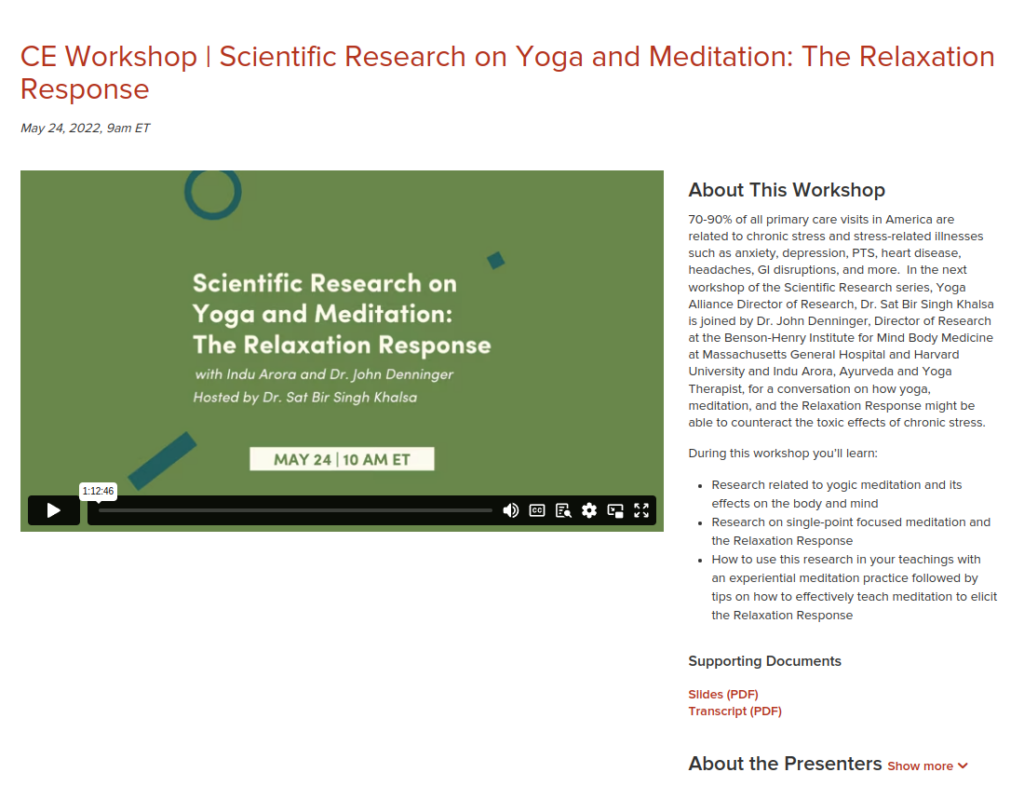Publication
Yoga Alliance
Abstract
About This Workshop
70-90% of all primary care visits in America are related to chronic stress and stress-related illnesses such as anxiety, depression, PTS, heart disease, headaches, GI disruptions, and more. In the next workshop of the Scientific Research series, Yoga Alliance Director of Research, Dr. Sat Bir Singh Khalsa is joined by Dr. John Denninger, Director of Research at the Benson-Henry Institute for Mind Body Medicine at Massachusetts General Hospital and Harvard University and Indu Arora, Ayurveda and Yoga Therapist, for a conversation on how yoga, meditation, and the Relaxation Response might be able to counteract the toxic effects of chronic stress.
During this workshop you’ll learn:
- Research related to yogic meditation and its effects on the body and mind
- Research on single-point focused meditation and the Relaxation Response
- How to use this research in your teachings with an experiential meditation practice followed by tips on how to effectively teach meditation to elicit the Relaxation Response
Web and Email Links
Related Listings
Journal
Radiology
Immediately before they underwent femoral angiography, 45 patients were given one of three types of audiotapes: a relaxation response tape recorded for this study, a tape of contemporary instrumental music, or a blank tape. All patients were instructed to listen to their audiotape during the entire angiographic procedure. Each audiotape was played through earphones. Radiologists were not told the group assignment or tape contents. The patients given the audiotape with instructions to […]
Journal
Psychotherapy and Psychosomatics
The effect of a 10-week meditation program on 20 patients who were undergoing long-term individual explorative psychotherapy was studied. Change in the psychological well-being of the patients and the impact of the program on the process of their psychotherapy was evaluated. Results obtained from the patients’ self-ratings and the therapists’ objective ratings demonstrated a significant and substantial improvement in most measures of psychological well-being.
Journal
Journal of Cardiopulmonary Rehabilitation
We previously reported reduced blood pressure, psychological symptoms, and other cardiac risk factors in hypertensive patients who participated in a nonpharmacologic, outpatient behavioral program. The present study is a 3 to 5 year follow-up of 59 (60%) of the same patients (who served as their own controls) to assess continued efficacy of the program. At entry into the study, patients had hypertension for a median of 6 years. Therefore, it is unlikely that placebo effect could expla […]

